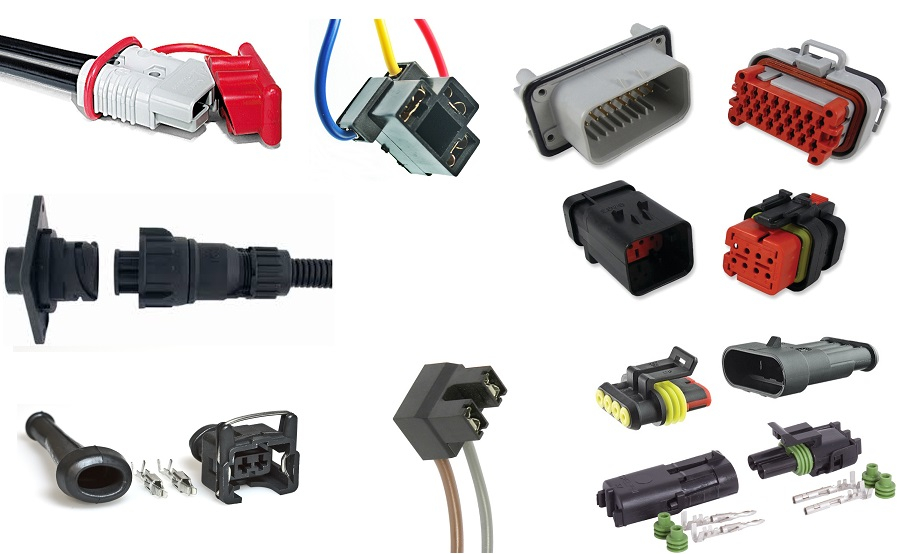Auto connectors are indispensable components in the modern automotive industry. These devices serve as critical junctions, facilitating the seamless flow of electrical signals and power between various electronic and electrical systems within a vehicle. As cars become increasingly sophisticated with advanced infotainment systems, autonomous driving technologies, and enhanced safety features, the role of auto connectors becomes ever more vital.
What are Auto Connectors?
Auto connectors, also known as automotive connectors, are electromechanical devices used to join electrical circuits together. They ensure that electrical signals are transmitted effectively and reliably between different parts of a vehicle. These connectors come in various shapes, sizes, and configurations, designed to meet the specific needs of different automotive applications.

Types of Auto Connectors
- Wire-to-Wire Connectors: These connectors link one wire to another, providing a simple and reliable connection. They are commonly used in applications where space is limited and direct connections are necessary.
- Wire-to-Board Connectors: These connectors join a wire to a printed circuit board (PCB). They are crucial in connecting various electronic modules and control units within the vehicle.
- Board-to-Board Connectors: Used primarily within electronic control units (ECUs), these connectors facilitate communication between different PCBs, ensuring the integrated operation of complex electronic systems.
- Specialty Connectors: These include connectors designed for specific applications such as high-speed data transmission, high-power connections, or those with enhanced environmental resistance for use in harsh conditions.
Key Considerations in Auto Connector Design
Durability and Reliability
Auto connectors must withstand extreme conditions, including high temperatures, vibrations, moisture, and chemical exposure. They are designed to provide reliable connections over the vehicle’s lifespan, often incorporating features like waterproofing, corrosion resistance, and secure locking mechanisms to ensure durability.
Electrical Performance
The electrical performance of auto connectors is crucial. They must support various signal types and power levels while minimizing resistance and ensuring stable connectivity. This includes considerations for current carrying capacity, voltage rating, and shielding to prevent electromagnetic interference (EMI).
Size and Weight
As automotive designs aim to reduce weight and save space, connectors are becoming smaller and lighter. Compact and lightweight connectors help in enhancing vehicle efficiency and performance by contributing to overall weight reduction.
Ease of Installation and Maintenance
Connectors are designed for easy installation and maintenance. Features like snap-fit mechanisms, color-coding, and standardized interfaces facilitate quick and error-free connections during assembly and servicing.
Applications of Auto Connectors
Infotainment Systems
Connectors play a crucial role in the integration of infotainment systems, connecting components such as touchscreens, audio systems, navigation modules, and auto connectors connectivity interfaces to provide a seamless user experience.
Safety Systems
Advanced driver-assistance systems (ADAS), airbags, and other safety features rely on robust and reliable connectors to ensure that these critical systems function correctly and respond promptly in emergency situations.
Powertrain and Engine Management
Connectors are integral to the operation of powertrain and engine management systems, linking sensors, actuators, and control units to optimize engine performance, fuel efficiency, and emissions control.
Electric and Hybrid Vehicles
In electric and hybrid vehicles, connectors are essential for linking high-voltage batteries, inverters, charging ports, and electric motors. These connectors must handle high currents and voltages while ensuring safety and reliability.
Future Trends in Auto Connectors
As the automotive industry moves towards greater electrification, connectivity, and automation, the demand for advanced auto connectors is set to rise. Key trends include:
- High-Speed Data Transmission: With the rise of connected and autonomous vehicles, connectors capable of handling high-speed data transmission are becoming increasingly important.
- Miniaturization: Ongoing efforts to reduce vehicle weight and space are driving the development of smaller, more compact connectors without compromising performance.
- Increased Durability: Enhanced materials and designs are being developed to improve the durability and longevity of connectors, especially in harsh environmental conditions.
- Sustainability: The push towards sustainable and environmentally friendly vehicle designs is influencing the development of connectors made from recyclable materials and with energy-efficient manufacturing processes.
Conclusion
Auto connectors are the unsung heroes of modern vehicles, enabling the complex electrical and electronic systems that define today’s automotive technology. As vehicles continue to evolve, the role of these connectors will only become more critical, driving innovation and ensuring the reliability, efficiency, and safety of future automotive advancements.
